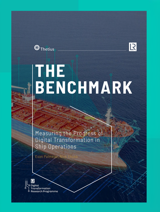Explore our expert-led assessment of nuclear solutions for maritime applications.
Through the readiness assessment, key trends in the zero carbon fuels landscape have been uncovered, and key priorities that need to be addressed to advance readiness further have been identified. We have also recommended specific stakeholder actions that align with these priority areas.
Making the right decisions
The Zero Carbon Fuel Monitor framework is a resource for the industry showing the current state of developments and indicating progress towards industry-wide solutions. It addresses three fundamental questions for decarbonising the global fleet, at each stage of the supply chain:
- How close is the technology to being proven, scalable and safe? - Technology readiness (TRL)
- Is the business case robust enough to attract investment? - Investment readiness (IRL)
- How prepared are people and organisations to adopt the new solution? - Community readiness (CRL)
Zero carbon fuels are defined as energy systems that have the potential to deliver ship power with net-zero carbon dioxide emissions, inclusive of production and use.

Review expertise, readiness levels and data on future fuels

Examine ammonia data

Examine biofuel data

Examine electrification data

Examine hydrogen data

Examine methane data

Examine methanol data

Examine nuclear data
Advancing zero carbon readiness
The created Zero Carbon Fuel Monitor is based on evidence from a wide range of sources, assessed by the Maritime Decarbonisation Hub and LR. The results are regularly updated in line with the latest developments and are used to identify research, development and deployment projects that will advance solution readiness and accelerate a safe and sustainable transition to zero. The zero carbon marine fuels landscape is constantly evolving, and the content reflects our expert’s views priorities at a snapshot in time. We welcome any knowledge you can contribute to help refine and update this public resource. Your insights play a crucial role in enhancing our collective understanding to accelerate the energy transition.









